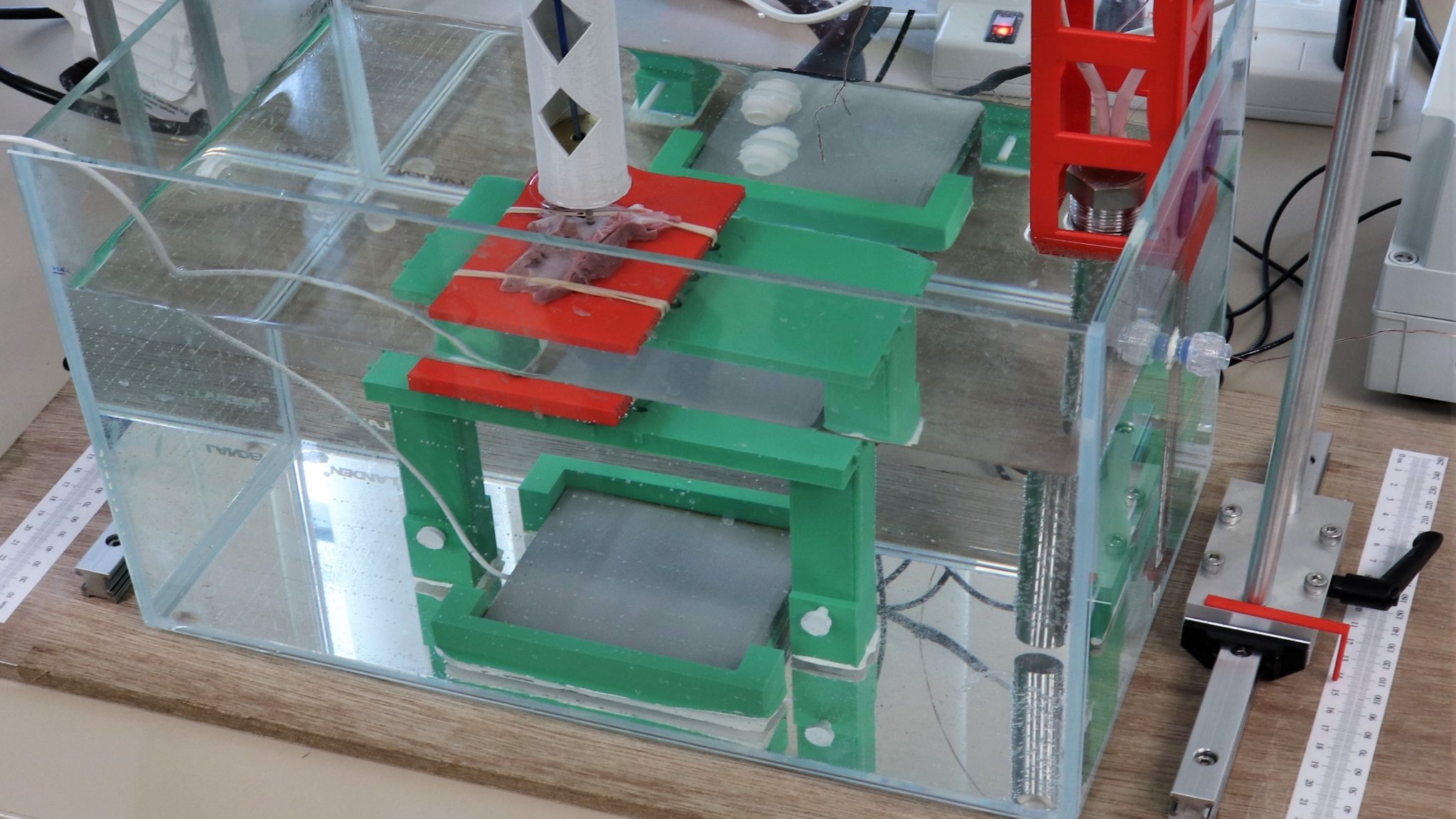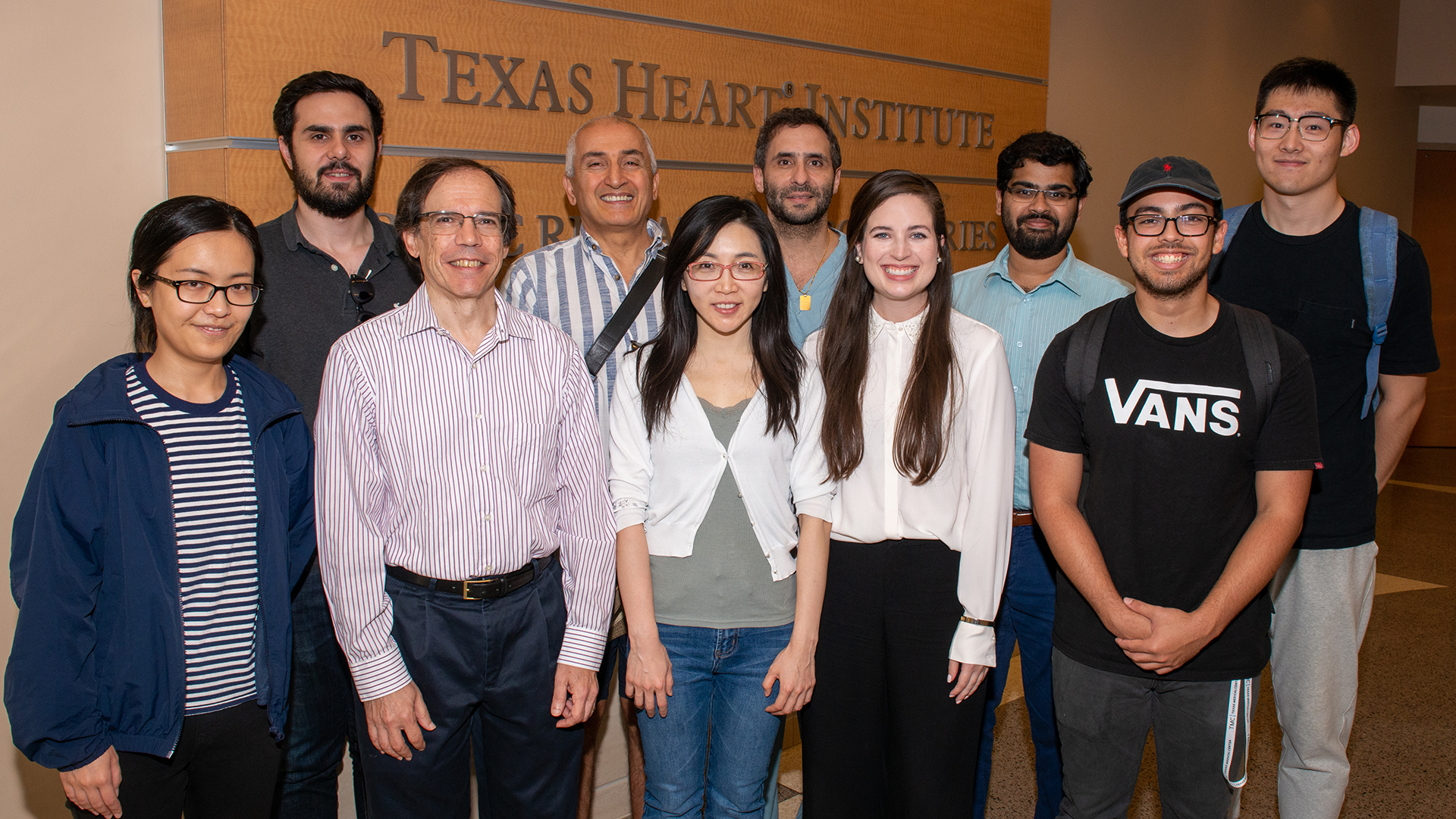The Electrophysiology Clinical Research & Innovations (EPCRI) department provides infrastructure for translational and clinical cardiac arrhythmia research and innovation at the Texas Heart Institute. Led by Director Mehdi Razavi, MD, EPCRI’s team of physicians and research engineers focuses on translational research to develop novel devices and techniques to detect, manage, and treat various cardiac conditions, particularly heart-rhythm diseases. Importantly, the group shares their expertise in engineering and medical device development to help advance projects beyond cardiac applications, with the broader goal of improving healthcare outcomes and quality of life for patients.
The team has helped make THI an internationally recognized leader in the field of cardiac arrhythmia research and management. This past year, they forged new partnerships with the TMC and accelerators, launched several new initiatives, and expanded existing research collaborations.

TexCaLaBR – A Catheter Lab-on-the-Bench
Clinical and preclinical settings provide only limited opportunity to directly evaluate and characterize the effects of ablation techniques on cardiac tissue. The EPCRI department has created TexCaLaBR, a versatile benchtop system for training physicians and testing ablation input parameters in an ex vivo, tissue-based experimental model. The team hopes that test studies performed using TexCaLaBR will yield insights that improve heart ablation techniques and reduce procedural complications, such as potentially life-threatening damage to the esophagus during ablation. Recently established relationships with the medical device companies Biosense Webster, Inc. and Boston Scientific have set the stage to initiate an electrophysiology physician-training program that will service the entire Southwest region of the United States.
Developing New Technology for Patients on Ventilation
Dr. Razavi and the engineers in EPCRI provided prototyping services to Houston-based XN Health as a part of the Roderick D. MacDonald Research Fund grant awarded to the EPCRI to advance the life-support weaning technology so critical to COVID-19 patients requiring ventilator support. The nerve-stimulation technology is designed to prevent a harmful side-effect of mechanical ventilation known as ventilator-induced diaphragm dysfunction (VIDD). THI and XN Health collaborated closely with TMC Innovation (TMCi), which filed a new patent with THI that is being licensed out to XN Health.
Clinical Research: Identifying Arrhythmia Triggers
EPCRI investigators and their collaborators have taken a big-data approach to understanding the factors that can trigger cardiovascular events, with an added emphasis on the effects of coronaviruses on the cardiovascular system. Over the past 7-8 years, THI Research Scientist Payam Safavi-Naeini, MD, has worked in collaboration with Mohammad Madjid, MD, at the McGovern Medical School at The University of Texas Health Science Center at Houston (now at the David Geffen School of Medicine, UCLA) to identify triggers of cardiovascular events.
The investigators analyzed the Zio cardiac-monitoring patch database, which contains data from more than 800,000 arrhythmia cases, to discover what role influenza plays in triggering different types of arrhythmias. In addition, the investigators reviewed the Medtronic database (which has data from more than 160,000 cases) to determine the extent to which influenza and COVID-19 can trigger arrhythmias. They published their findings in JAMA Cardiology.
JAMA Cardiology Review: COVID-19 and Potential Effects on the Heart & Vascular System
4th most cited paper in JAMA, with more than 1400 citations.
Explore our new Digital Annual Report or read the report in a Flipbook or Mobile/Tablet view.

.svg)



